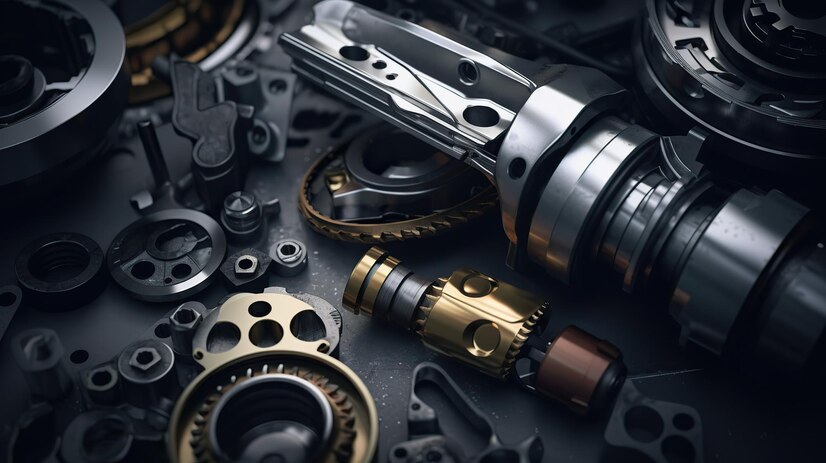Introduction to the BMW B58 Engine
As a car enthusiast, I’ve always been intrigued by the engineering marvels that power our vehicles. The BMW B58 engine is no exception. Introduced in 2015, the B58 engine is part of BMW’s modular engine family, and it has quickly gained a reputation for its impressive power, smooth delivery, and overall reliability. This inline-six powerplant boasts a robust design, advanced technology, and a strong performance heritage. With its combination of turbocharging, direct injection, and variable valve timing, the B58 engine delivers an exhilarating driving experience while maintaining efficiency and durability.
The b58 engine problems has been widely acclaimed for its performance and refinement, making it a popular choice among BMW enthusiasts and automotive journalists alike. Its power delivery is smooth and linear, offering an impressive torque curve that provides ample low-end grunt and a strong top-end rush. Whether it’s powering the latest BMW 3 Series, 5 Series, or Z4, the B58 engine has proven to be a reliable workhorse, capable of delivering spirited performance and long-term durability.
Common BMW B58 Engine Problems
While the BMW B58 engine is known for its impressive performance and overall reliability, like any complex piece of machinery, it is not without its faults. Owners have reported several common issues that can affect the B58 engine’s performance and longevity. Being aware of these potential problems can help BMW enthusiasts and owners take proactive measures to address them and ensure the long-term health and reliability of their B58-powered vehicles.
Overheating Issues
One of the most commonly reported problems with the BMW B58 engine is related to overheating. Some owners have experienced instances of the engine running hot, especially under demanding driving conditions or in high-temperature environments. Overheating can lead to a range of issues, including reduced engine performance, potential damage to engine components, and even complete engine failure if not addressed promptly.
To mitigate the risk of overheating, BMW owners should be diligent about maintaining the cooling system, including regular inspections of the radiator, coolant levels, and cooling fan operation. Additionally, ensuring proper airflow to the engine bay, especially in high-performance driving scenarios, can help prevent overheating and preserve the B58 engine’s long-term reliability.
Oil Leaks and Consumption
Another common problem that some BMW B58 engine owners have encountered is related to oil leaks and excessive oil consumption. b58 engine problems Oil leaks can develop from various points in the engine, including the valve cover gasket, oil filter housing, and turbocharger oil lines. Excessive oil consumption can not only lead to the need for more frequent oil top-ups but also potential damage to engine components if the oil level drops too low.
Addressing oil leaks and consumption issues proactively is essential to maintaining the health of the B58 engine. Regular inspections for oil leaks, timely replacement of gaskets and seals, and using high-quality synthetic oil can help mitigate these issues and ensure the engine remains properly lubricated for optimal performance and longevity.
High-Pressure Fuel Pump Failures
High-pressure fuel pump (HPFP) failures have been reported by some BMW B58 engine owners, leading to drivability issues and potential engine stalling. The HPFP is a critical component responsible for delivering fuel at the high pressures required for direct injection systems. When the HPFP fails, it can result in misfires, rough idling, and a loss of power, compromising the driving experience and potentially causing long-term damage to the engine.
To address potential high-pressure fuel pump failures, BMW owners should stay vigilant for symptoms such as rough running or engine stalling, and promptly address any issues with the fuel delivery system. Regular maintenance, including fuel system inspections and using high-quality fuel, can help prevent HPFP failures and ensure the B58 engine’s reliability.
Carbon Buildup
Carbon buildup on intake valves and in the combustion chambers is a common issue in direct-injected engines, and the BMW B58 engine is not immune to this problem. If left unaddressed, excessive carbon buildup can lead to drivability issues and potential damage to vital engine components.
To combat carbon buildup, BMW B58 engine owners can consider periodic intake valve cleanings or using specialized fuel additives designed to reduce carbon deposits. Additionally, driving habits that promote engine efficiency, such as regular high-speed driving or occasional aggressive acceleration, can help minimize carbon buildup and preserve the engine’s long-term performance.
Timing Chain Tensioner Failure
The timing chain tensioner is a crucial component in the B58 engine’s valvetrain system, and some owners have reported issues related to timing chain tensioner failure. A faulty or worn tensioner can lead to timing chain slack, potentially causing timing-related issues, abnormal engine noise, and even catastrophic engine damage if the timing chain skips or fails.
To address potential timing chain tensioner issues, BMW owners should adhere to the manufacturer’s recommended maintenance schedule, including regular inspections of the timing chain and tensioner components. Prompt replacement of worn or faulty tensioners can help prevent timing chain-related problems and ensure the B58 engine’s long-term reliability.
How to Address BMW B58 Engine Problems
While the prospect of encountering issues with the BMW B58 engine may seem daunting, it’s essential for owners to approach these challenges with a proactive mindset. Addressing potential problems in a timely manner and implementing preventive measures can go a long way in preserving the B58 engine’s reliability and performance. By understanding how to tackle common issues and taking proactive steps, BMW enthusiasts can continue to enjoy the driving experience that the B58 engine provides.
Preventative Maintenance for the BMW B58 Engine
Taking a proactive approach to maintenance is key to addressing and preventing potential problems with the BMW B58 engine regular servicing at authorized BMW service centers or reputable independent mechanics can ensure that the engine is properly maintained and any emerging issues are promptly addressed. Following the manufacturer’s recommended maintenance schedule for oil changes, filter replacements, and inspections is crucial in maintaining the B58 engine’s reliability.
In addition to scheduled maintenance, BMW owners can consider proactive measures such as using high-quality synthetic oil, fuel additives to prevent carbon buildup, and maintaining the cooling system to prevent overheating. Staying informed about common issues and being attentive to any changes in the engine’s behavior can help owners catch potential problems early and take corrective action before they escalate.
Conclusion
In conclusion, the BMW B58 engine is a remarkable piece of engineering, delivering impressive performance, efficiency, and reliability. While it is not without its common problems, proactive maintenance and timely addressing of issues can help BMW owners ensure that their B58-powered vehicles continue to provide an exhilarating driving experience for years to come. By staying informed about potential issues, following the manufacturer’s maintenance recommendations, and taking proactive measures, BMW enthusiasts can enjoy the full potential of the B58 engine while mitigating common problems and preserving its long-term reliability.
I hope this article has provided valuable insights into the common problems associated with the BMW B58 engine and how to address them proactively. With the right approach to maintenance and a keen eye for potential issues, BMW owners can continue to enjoy the performance and reliability that the B58 engine has to offer.














+ There are no comments
Add yours